Ditapis dengan

International review of environmental history :volume 6, issue 1, 2020
International Review of Environmental History takes an interdisciplinary and global approach to environmental history. It encourages scholars to think big and to tackle the challenges of writing environmental histories across different methodologies, nations, and time-scales. The journal embraces interdisciplinary, comparative and transnational methods, while still recognising the importance o…
- Edisi
- -
- ISBN/ISSN
- 22053212
- Deskripsi Fisik
- 125p. : ill.
- Judul Seri
- -
- No. Panggil
- 333.7 INT i
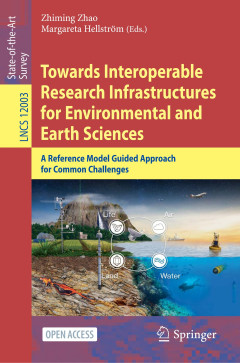
Towards interoperable research infrastructures for environmental and earth sc…
This open access book summarises the latest developments on data management in the EU H2020 ENVRIplus project, which brought together more than 20 environmental and Earth science research infrastructures into a single community. It provides readers with a systematic overview of the common challenges faced by research infrastructures and how a ‘reference model guided’ engineering approach ca…
- Edisi
- -
- ISBN/ISSN
- 9783030528294
- Deskripsi Fisik
- -
- Judul Seri
- -
- No. Panggil
- 333.7072 TOW t
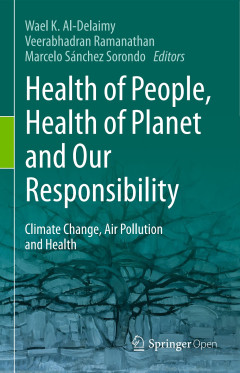
Health of people, health of planet and our responsibility :climate change, ai…
This open access book not only describes the challenges of climate disruption, but also presents solutions. The challenges described include air pollution, climate change, extreme weather, and related health impacts that range from heat stress, vector-borne diseases, food and water insecurity and chronic diseases to malnutrition and mental well-being. The influence of humans on climate chang…
- Edisi
- -
- ISBN/ISSN
- 9783030311254
- Deskripsi Fisik
- xxiii, 417p. : ill.
- Judul Seri
- -
- No. Panggil
- 363.73874 HEA h
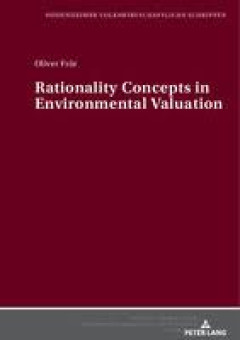
Rationality concepts in environmental valuation
Survey based valuation techniques like the Contingent Valuation Method (CVM) rely particularly on the premise of respondents’ rationality when answering willingness to pay (WTP) questions. Results of CVM surveys have repeatedly put this fundamental assumption into question. This study adopts a more realistic view of rationality accounting for respondents’ limited capacities to process infor…
- Edisi
- -
- ISBN/ISSN
- 9783631573365
- Deskripsi Fisik
- xvi, 239 p. : ill. ; 21 cm.
- Judul Seri
- -
- No. Panggil
- 333.72 FRO r
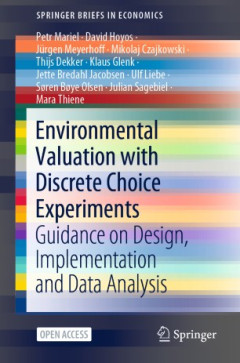
Environmental valuation with discrete choice experiments :guidance on design,…
This open access book offers up-to-date advice and practical guidance on how to undertake a discrete choice experiment as a tool for environmental valuation. It discusses crucial issues in designing, implementing and analysing choice experiments. Compiled by leading experts in the field, the book promotes discrete choice analysis in environmental valuation through a more solid scientific basis …
- Edisi
- -
- ISBN/ISSN
- 9783030626693
- Deskripsi Fisik
- xiii, 129p. : ill.
- Judul Seri
- -
- No. Panggil
- 333.7 ENV e
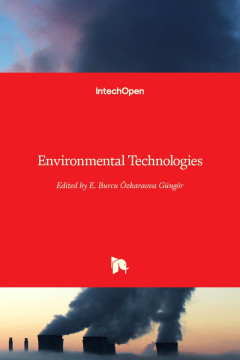
Environmental Technologies
This book on Environmental Technology takes a look at issues such as air, soil and noise pollution problems, environmental quality assessment, monitoring, modelling and risk as- sessment, environmental health impact assessment, environmental management and envi- ronmental technology development. It represents institutional arrangements, financial mechanisms and some sustainable technologies. Th…
- Edisi
- -
- ISBN/ISSN
- 9789535158226
- Deskripsi Fisik
- v, 278p. : ill,
- Judul Seri
- -
- No. Panggil
- 363.7 BUR e
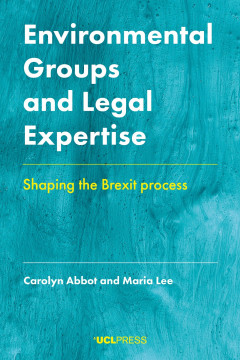
Environmental groups and legal expertise :shaping the Brexit process
Environmental Groups and Legal Expertise explores the use and understanding of law and legal expertise by environmental groups. Rather than the usual focus on the court room, it scrutinises environmental NGO advocacy during the extraordinarily dramatic Brexit process, from the referendum on leaving the EU in June 2016 to the debate around the new Environment Bill in the first half of 2020. T…
- Edisi
- -
- ISBN/ISSN
- 9781787358584
- Deskripsi Fisik
- xxi, 191 p.
- Judul Seri
- -
- No. Panggil
- 344.4046 ENV C
 Karya Umum
Karya Umum  Filsafat
Filsafat  Agama
Agama  Ilmu-ilmu Sosial
Ilmu-ilmu Sosial  Bahasa
Bahasa  Ilmu-ilmu Murni
Ilmu-ilmu Murni  Ilmu-ilmu Terapan
Ilmu-ilmu Terapan  Kesenian, Hiburan, dan Olahraga
Kesenian, Hiburan, dan Olahraga  Kesusastraan
Kesusastraan  Geografi dan Sejarah
Geografi dan Sejarah